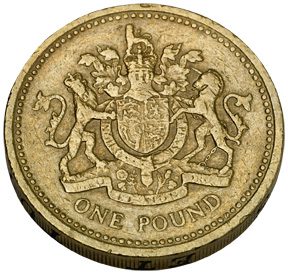The Government is going to spend £100m for a new Taxpayer Protection Taskforce to tackle fraudsters who have exploited UK Government support schemes.
As featured in the March print edition of Professional Security magazine, police ‘very much doubt’ that they will investigate every case of fraud. The authorities and a National Audit Office (NAO) report acknowledge that the support schemes for business came out in spring 2020 to help businesses through the first lockdown without measures to combat fraud (or error).
Comments
Mike Haley, Chief Executive at the counter-fraud trade body Cifas, said: ‘The introduction of a Taxpayer Protection Taskforce recognises the scale of attack that public funds have been under since the beginning of the pandemic. We’ve seen soaring levels of fraud reported recently, with over 300,000 cases filed to the National Fraud Database in 2020. This new taskforce will play an important part in identifying where criminals have taken advantage of important stimulus initiatives, and helping to ensure that public sector money goes to where it is really needed.
‘Introducing the Restart Grants and Recovery Loans to stimulate the high street will be welcomed by businesses that continue to struggle as a result of the pandemic. However experience tells us that fraudsters are quick to use these opportunities to steal much-needed funds, and so it is crucial that the Government is taking necessary steps to ensure that public money doesn’t fall into the hands of fraudsters – including carrying out fraud checks.
‘Councils are once again being asked to administer the new package of support to businesses. I would urge all those involved to review their processes, to ensure that the speed of processing applications is appropriately balanced with measures to detect and prevent fraud, such as by checking against all available data sources so that grants will reach their intended recipient.
‘If these financial measures are to be amongst the last made available directly to businesses to help them recover from the pandemic, we can say with certainty that fraudsters will be targeting them.’
The Government will more than double the legal limit for single contactless payments, from £45 to £100. That’s among the announcements in this afternoon’s 2021 Budget.
Also announced was £10m to support veterans with mental health needs across the UK.
On contactless, Jason Hart, CTO at cyber firm Trustonic said that it signals an acceleration towards a cashless society, something that will be increasingly welcomed in a post-covid world. “However, to think that this change will happen without a visible increase in cases of mobile fraud and theft would be naïve. This change effectively raises the inherent value of mobile devices and so increases their appeal to criminals and fraudsters.
“We expect to see a heightened awareness of this fact amongst consumers, and along with it an increase in consumer demand for mobile devices with the highest level of security. As our mobile devices become increasingly used as our own personal payment terminals (using mPOS*) we may well expect to see security become a deciding factor in consumer purchasing decisions.”
Andy Renshaw, VP of payment solutions and strategy at risk management cloud platform Feedzai, said: “While done with the objective of boosting high street shopping, this move means that banks will have to work even faster to identify and block potentially suspicious transactions. Of particular interest will be how much a fraudster can spend in total between each chip and pin verification (expected to be £300), while we expect that all the necessary precautions will be put in place, there is certainly an added element of risk that will need to be accounted as banks and customers adapt.”
And Vince Graziani, CEO of fingerprint ID product firm IDEX Biometrics ASA, said: “The increase to contactless limit is positive news for the payments industry, as it will provide a faster, more convenient and safer touch-free payment method. Over the past year, touch-free payments have quickly become second nature for consumers to tap their card to pay for goods and services instead of using cash or punching in a PIN to minimise the spread of coronavirus.
“However, with banks increasing contactless limits, they are exposing not only themselves but their consumers to greater levels of fraud. Higher levels of security during the payment authentication process are needed to combat this, and fingerprint biometric payment cards – which confidently link the user to their card – would be the ideal solution. As our economy gradually reopens, biometric identification in payment cards will become essential to help consumers navigate the shopping and transaction process safely, speedily and securely.”
In Parliament Chancellor of the Exchequer Rishi Sunak said: “This Budget meets the moment with a three-part plan to protect the jobs and livelihoods of the British people. First, we will continue doing whatever it takes to support the British people and businesses through this moment of crisis.
“Second, once we are on the way to recovery, we will need to begin fixing the public finances – and I want to be honest today about our plans to do that. And, third, in today’s Budget we begin the work of building our future economy.”










